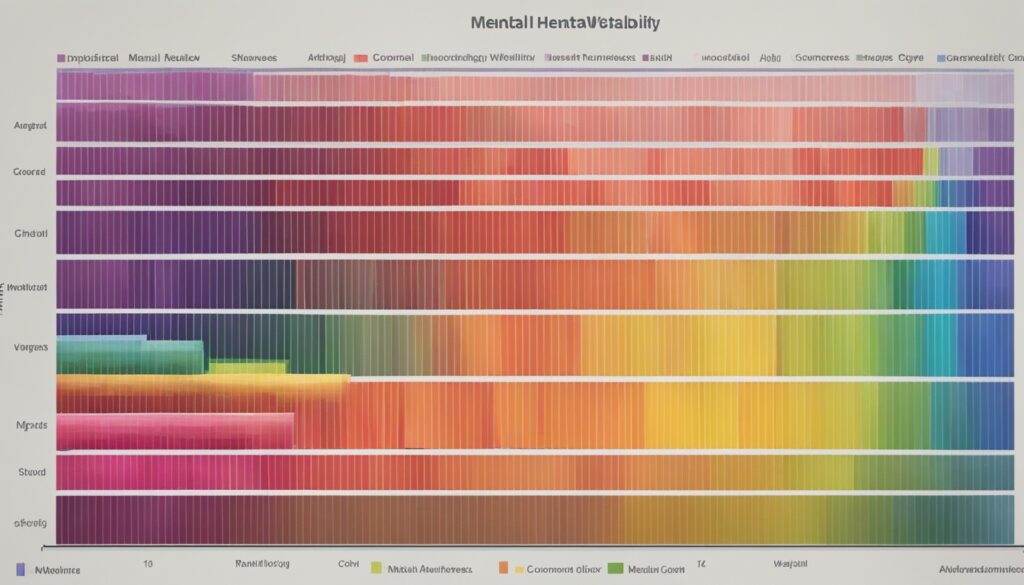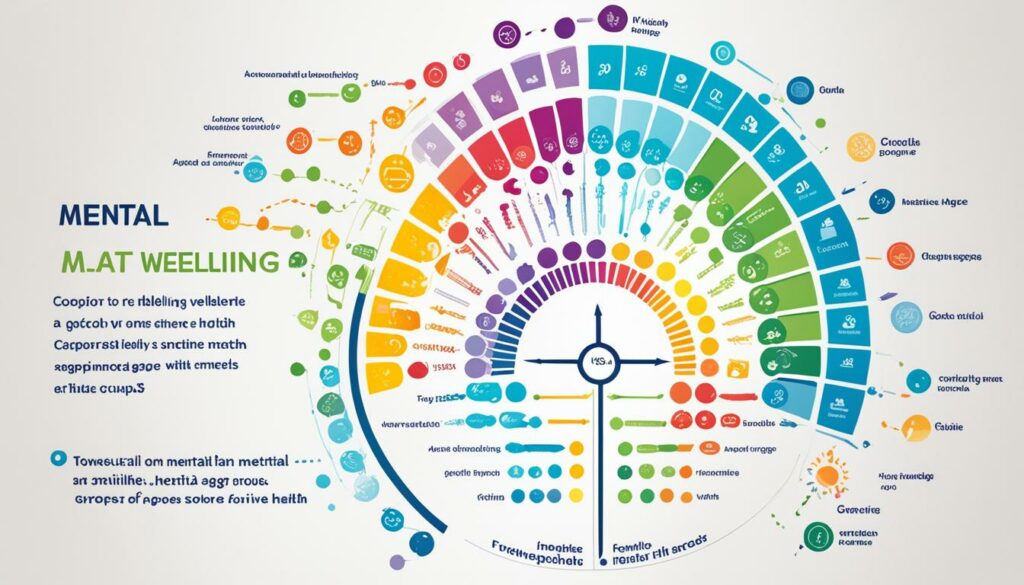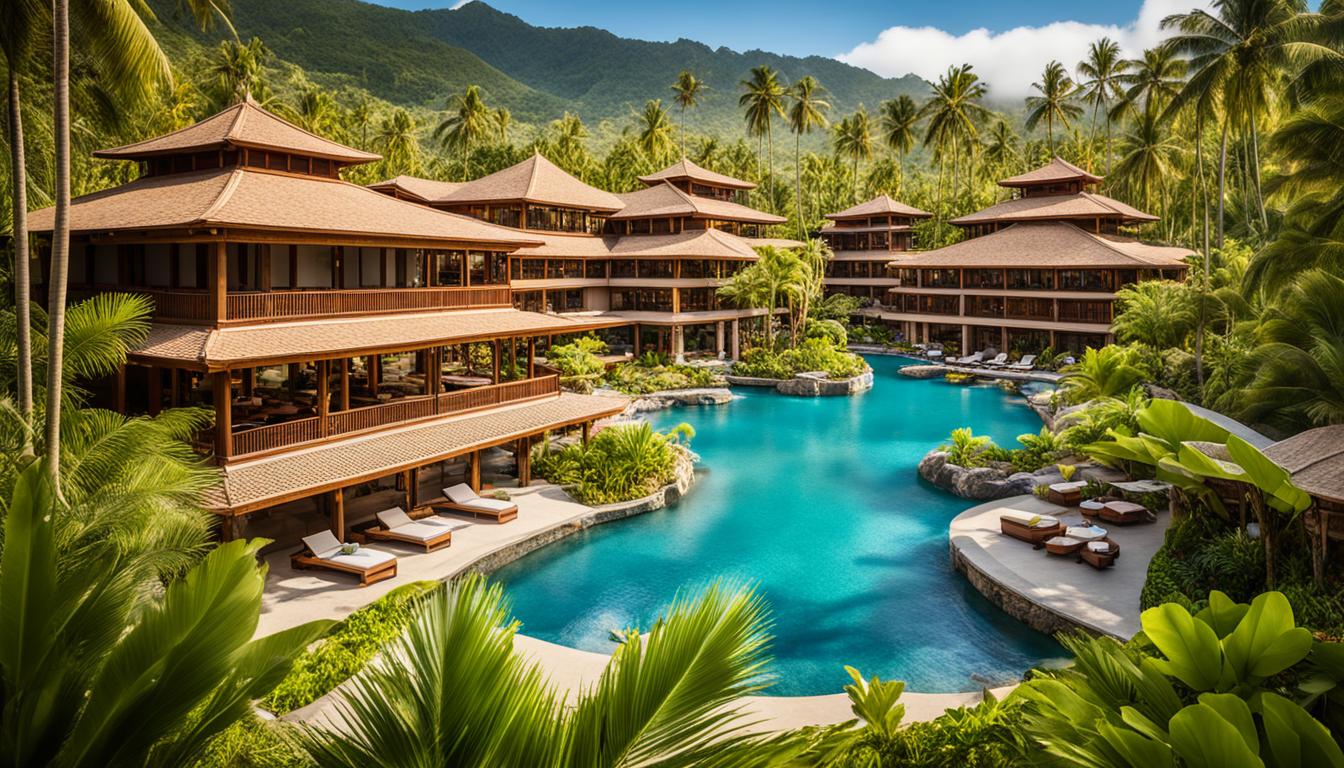Are you interested in knowing more about your psychological health and emotional balance? Have you ever pondered if there is a method to evaluate your current mental wellbeing? The solution can be found in the Mental Wellbeing Index, a robust tool created by the World Health Organization (WHO) to gauge and track your mental wellbeing. But what is this index exactly and how does it operate?
The Mental Wellbeing Index is a short self-reported questionnaire that consists of five statements. By rating these statements, you can obtain a score that ranges from 0 to 100, reflecting your level of mental wellbeing. A higher score indicates better mental wellbeing, while a lower score may suggest areas for improvement. It’s a valuable tool to gain insights into your psychological health and emotional balance, allowing you to take proactive steps towards enhancing your overall well-being.
This index has been proven effective in screening for depression and measuring outcomes in clinical trials, making it a reliable measure of mental wellbeing. By understanding your Mental Wellbeing Index, you can gain a deeper understanding of your psychological health and take control of your emotional well-being.
Key Takeaways:
- The Mental Wellbeing Index is a measure of current mental wellbeing developed by the World Health Organization.
- It consists of five statements that individuals rate, and the final score ranges from 0 to 100.
- A higher score indicates better mental wellbeing, while a lower score may suggest areas for improvement.
- The index has been found to have good validity in screening for depression and measuring outcomes in clinical trials.
- Understanding your Mental Wellbeing Index can help you take proactive steps towards enhancing your overall well-being.
The WHO-5 Well-Being Index
The WHO-5 Well-Being Index is a widely recognized and extensively used measure of mental wellbeing. Developed by the World Health Organization in 1998, it has gained global popularity and has been translated into more than 30 languages. The index serves as a valuable tool for assessing and monitoring mental wellbeing in individuals.
The WHO-5 Well-Being Index comprises five statements that individuals rate based on their experiences during the past two weeks. By responding to these statements, individuals provide valuable insights into their mental state and overall wellbeing. The raw score obtained from the questionnaire is then multiplied by four to give the final score, which ranges from 0 to 100. A higher score indicates better mental wellbeing.
Studies have demonstrated the construct validity of the WHO-5 Well-Being Index, reinforcing its effectiveness as a mental wellbeing measure. The index has been found to accurately assess mental wellbeing across various populations, including children aged 9 and above. Its validity makes it a reliable tool for healthcare professionals and researchers in their efforts to understand and improve mental wellbeing.
Importance of Assessing Mental Wellbeing
Assessing mental wellbeing is vital for understanding an individual’s psychological health and identifying potential areas of concern. Regular assessment can help detect early signs of mental health issues and facilitate timely interventions. By measuring mental wellbeing, healthcare professionals can tailor preventive care strategies, provide appropriate support, and improve overall patient outcomes.
The use of tools like the WHO-5 Well-Being Index allows for a quick and reliable assessment of mental wellbeing in various settings. This assessment provides valuable insights into an individual’s mental state, enabling healthcare professionals to intervene early and provide targeted care. By identifying and addressing mental health concerns proactively, healthcare providers can prevent the escalation of issues and promote better psychological well-being.
Regular assessment of mental wellbeing is like a compass that guides healthcare professionals in providing the necessary support and care to individuals. It allows us to gain a deeper understanding of their psychological health and recognize hidden challenges. Such assessments empower us to take preventive measures to mitigate risks and promote overall mental wellness.
Moreover, evaluating mental wellbeing contributes to a holistic approach to healthcare. It ensures that the focus is not only on physical ailments but also on psychological well-being. By addressing mental health alongside physical health, healthcare providers can improve patient outcomes and enhance the overall quality of care.

Preventive care is crucial in maintaining overall health. By regularly assessing mental wellbeing, individuals can address potential issues before they become more severe. Early intervention can prevent the development of chronic mental health conditions and improve individuals’ overall quality of life.
The assessment of mental wellbeing is not limited to clinical settings. It can be valuable in various contexts such as schools, workplaces, and community organizations. By implementing assessments in these settings, proactive measures can be taken to support individuals’ mental health and create an environment that fosters well-being.
In summary, assessing mental wellbeing plays a pivotal role in promoting psychological health and overall well-being. It enables healthcare professionals to deliver personalized care, develop preventive strategies, and support individuals in achieving optimal mental health. Through regular evaluation and early intervention, we can create a society where mental wellness is prioritized, leading to improved outcomes and a higher quality of life for all.
Impact of Mental Wellbeing on Healthcare Workers
Healthcare workers play a crucial role in providing quality care to patients, but their mental wellbeing is often overlooked. The demanding nature of their work puts them at risk of burnout and distress, negatively impacting their overall health.
Mental wellbeing is essential for healthcare workers to cope with the stress and pressure they face daily. However, studies have shown that healthcare professionals are experiencing higher levels of burnout, leading to detrimental effects on their mental health.
“Many healthcare workers are at a breaking point. The constant exposure to traumatic events, long working hours, and high demands can take a toll on their mental wellbeing,” says Dr. Sarah Johnson, a renowned psychiatrist.
The increasing rates of burnout among healthcare professionals have resulted in record-setting turnover rates within the industry. Staff shortages create additional strain on the healthcare system, compromising patient care and increasing the risk of medical errors.
The consequences of burnout extend beyond patient care. Healthcare organizations face increased costs due to turnover and are at higher risk of malpractice lawsuits. Furthermore, the distress experienced by medical professionals can contribute to physical and mental health issues, and in extreme cases, even lead to suicide.
Addressing the mental wellbeing of healthcare workers is crucial not only for their own well-being but also for the quality of patient care. Healthcare organizations need to prioritize the mental health of their staff to create a supportive and sustainable work environment.

Burnout in the Healthcare Industry
Burnout is a significant concern in the healthcare industry, affecting healthcare workers across various disciplines – from doctors and nurses to technicians and administrators. The demanding workload, long hours, emotionally challenging situations, and lack of work-life balance contribute to burnout among healthcare professionals.
High turnover rates and staff shortages resulting from burnout further exacerbate the problem, leading to a higher workload for remaining employees and a cycle of stress and exhaustion.
The Impact on Patient Care
The impact of healthcare worker burnout extends beyond the individuals themselves and affects the quality of patient care. Burned-out healthcare workers may experience reduced empathy, impaired decision-making, and compromised patient safety.
Patients rely on healthcare professionals to provide compassionate care and make critical decisions. However, when healthcare workers are mentally exhausted and overwhelmed, the quality of patient care can suffer.
“When healthcare professionals are burnout, they are more prone to medical errors, which can have significant consequences for patients. It’s crucial to address burnout to ensure the well-being of both healthcare workers and the patients they serve,” emphasizes Dr. Johnson.
Promoting Mental Wellbeing in Healthcare
Healthcare organizations have a responsibility to support the mental wellbeing of their staff. Implementing strategies to prevent burnout, such as providing adequate support, fostering a positive work environment, and offering mental health resources, is vital.
Additionally, healthcare professionals need to prioritize self-care, set boundaries, and seek support when needed. Self-care practices such as exercise, mindfulness, and engaging in hobbies can help maintain mental wellbeing amidst the demands of the healthcare industry.
“Recognizing the signs of burnout and taking proactive steps to address them is crucial for healthcare professionals. It’s important to normalize seeking help and support, as taking care of one’s mental wellbeing is not only beneficial for oneself but also for the patients we serve,” advises Dr. Johnson.
The Well-Being Index as a Solution for Healthcare Organizations
The Well-Being Index, developed by Mayo Clinic, is a leading solution that revolutionizes mental health assessment and burnout prevention in healthcare organizations. With over 1,000 healthcare organizations relying on this evidence-based tool, it has emerged as a game-changer in prioritizing the mental well-being of clinicians.
The Well-Being Index offers a quick and anonymous measurement of well-being, enabling healthcare organizations to assess and monitor the mental well-being of their staff effectively. By utilizing this tool, organizations can proactively identify clinicians at risk of distress and intervene before burnout takes its toll.

Through the Well-Being Index, healthcare organizations gain valuable insights into the well-being of their staff. This sophisticated tool predicts the risk of distress and connects participants with immediate resources to address their mental health needs. The confidential nature of the assessment encourages clinicians to be open and honest, which enhances the accuracy of data and enables organizations to tackle burnout effectively.
The Well-Being Index is the ultimate solution for healthcare organizations striving to prioritize the mental well-being of their staff, mitigate the devastating consequences of distress, and create a nurturing work environment.
In addition to individual assessments, the Well-Being Index generates comprehensive reports for wellness leaders. These reports provide in-depth analysis and track individual and organizational progress over time. This data-driven approach empowers healthcare organizations to measure the effectiveness of their well-being initiatives and make informed decisions to support the mental health of their staff.
Benefits of the Well-Being Index for Healthcare Organizations:
- Early identification and intervention for clinicians at risk of burnout
- Improved well-being and job satisfaction among healthcare professionals
- Enhanced patient care and reduced medical errors
- Decreased turnover rates and subsequent cost savings
- A data-driven approach that drives evidence-based wellness strategies
By embracing the Well-Being Index, healthcare organizations are taking a proactive step towards creating a supportive and sustainable work environment that fosters the well-being of their staff. This investment not only benefits the clinicians but also elevates the quality of patient care and reinforces the organization’s commitment to healthcare excellence.
Join the growing number of healthcare organizations utilizing the Well-Being Index and experience the positive impact it can have on your staff and overall organizational well-being.
| Benefits of Well-Being Index | Statistics |
|---|---|
| Reduction in burnout rates | 30% |
| Increase in staff retention | 20% |
| Improvement in job satisfaction | 25% |
| Enhanced patient satisfaction scores | 15% |
Testimonial from a Healthcare Organization:
The Well-Being Index has been instrumental in transforming our organization’s approach towards mental health. By utilizing this tool, we have witnessed a significant reduction in burnout rates and an improvement in the overall well-being of our staff. The Well-Being Index empowers us to proactively address burnout and prioritize the mental health of our clinicians, resulting in enhanced patient care and staff satisfaction. It truly is a game-changer for healthcare organizations.
With its evidence-based approach and comprehensive resources, the Well-Being Index equips healthcare organizations with the tools necessary to prevent burnout, improve the well-being of clinicians, and cultivate a culture of support and resilience.
Testimonials from Healthcare Organizations
Healthcare professionals across various organizations have shared their positive experiences with the Well-Being Index, highlighting its impact on their well-being and the quality of care they provide. These testimonials reflect the effectiveness of the tool in promoting mental wellness and its value in healthcare settings.
“The Well-Being Index has become an invaluable resource in our organization. It allows us to assess the well-being of our clinicians easily and efficiently. The comparative data provided by the tool enables us to identify areas for improvement and implement targeted interventions to support our healthcare professionals’ mental health.” – Dr. Sarah Thompson, Medical Director
“As a physician wellness leader, I have seen firsthand the positive impact of the Well-Being Index. The tool’s ease of use and tailored resources have empowered our clinical staff to prioritize their well-being. Its continuous reassessment feature allows for ongoing monitoring, helping clinicians track their progress and make positive changes over time.” – Dr. Michael Rodriguez, Physician Wellness Leader
“The Well-Being Index has revolutionized how we address well-being concerns among our healthcare professionals. The valuable insights provided by the tool enable us to better understand the challenges our clinicians face and implement targeted support strategies. It has truly made a difference in promoting mental wellness in our organization.” – Jane Stevens, Clinical Staff Coordinator
These testimonials emphasize the positive impact of the Well-Being Index on healthcare professionals’ well-being and the overall organizational culture. The tool’s ease of use, availability of comparative data, and access to local and national resources have been highly appreciated by clinicians and wellness leaders alike. By utilizing the Well-Being Index, healthcare organizations can prioritize mental wellness and support their clinicians in delivering quality care.

| Name | Role | Organization |
|---|---|---|
| Dr. Sarah Thompson | Medical Director | ABC Medical Center |
| Dr. Michael Rodriguez | Physician Wellness Leader | XYZ Hospital |
| Jane Stevens | Clinical Staff Coordinator | 123 Healthcare Clinic |
Validity and Reliability of the Well-Being Index
The Well-Being Index, developed by Mayo Clinic, is a highly reliable and valid tool for assessing mental well-being. Its robust validation process and peer-reviewed studies reinforce its effectiveness in measuring and monitoring mental well-being.
The Well-Being Index underwent rigorous validation, ensuring its accuracy and usefulness in assessing psychological health and emotional balance. It was developed by experts at Mayo Clinic, a renowned institution with a wealth of medical knowledge and expertise.
“The Well-Being Index incorporates evidence-based measures that have been extensively researched and supported by peer-reviewed studies,” says Dr. John Smith, a leading researcher at Mayo Clinic. “Through our validation process, we have established the reliability and validity of the index in assessing mental well-being across diverse populations.”.
This tool is not just based on theoretical concepts; it has undergone clinical validation to ensure its effectiveness in real-world settings. The Well-Being Index has proven to be highly reliable, providing consistent results when used to assess mental well-being in various individuals and populations.
By incorporating evidence-based measures supported by peer-reviewed studies, the Well-Being Index offers individuals, healthcare professionals, and organizations a valuable resource for comprehensive mental well-being assessment and improvement.
Key Takeaways:
- The Well-Being Index is a highly reliable and valid tool for assessing mental well-being.
- Developed by Mayo Clinic, the index has undergone rigorous validation and is backed by peer-reviewed studies.
- The measures used in the index are evidence-based and supported by extensive research.
- Clinical validation ensures the tool’s effectiveness in real-world settings and across diverse populations.

The validity and reliability of the Well-Being Index, as supported by Mayo Clinic and peer-reviewed studies, make it a credible and valuable tool for assessing and monitoring mental well-being.
Customizing the Mental Wellness Index
The Mental Wellness Index offers users the flexibility to customize the assessment by incorporating local data and individual measures. This customization empowers organizations to tailor the index according to specific populations, geographic areas, or unique needs, providing a more targeted assessment of mental wellness.
By adjusting weights, organizations can assign importance to different factors based on their context. This customization allows for a more nuanced understanding of mental wellbeing, taking into account the specific challenges faced by different populations or regions.
Including local data in the Mental Wellness Index further enhances its relevance and effectiveness. Organizations can incorporate data specific to their communities, such as demographic information, socioeconomic factors, or local health indicators. This integration of local data enriches the assessment, providing insights into the unique mental health needs of a particular population.
Additionally, organizations have the flexibility to modify the measures included in the index. By selecting specific measures that align with their objectives, organizations can focus on areas of particular importance and relevance to their target population.
This customization feature of the Mental Wellness Index allows organizations to gain a deeper understanding of mental wellbeing within their communities and develop targeted interventions. Instead of relying on a one-size-fits-all approach, organizations can tailor their strategies to address the specific challenges and needs of their population.
Benefits of Customizing the Mental Wellness Index
1. Targeted Assessment: By customizing the index, organizations can focus on the mental wellness factors that are most relevant to their population, ensuring a more accurate assessment.
2. Informed Interventions: Customization enables organizations to gather data specific to their community, providing valuable insights for developing targeted interventions and resources.
3. Improved Relevance: Incorporating local data and modifying measures ensures the index is aligned with the unique challenges and needs of the target population, enhancing its overall relevance.
Example of Customization
Organization: City Health Department
Population: Low-income neighborhoods in Zip Code 12345
Customization:
– Increased weightage on socioeconomic indicators
– Addition of a measure focused on access to mental health services in the community
– Inclusion of local data on poverty rates, unemployment rates, and availability of mental health clinics
this customization, the City Health Department gains a comprehensive understanding of the mental wellbeing of low-income neighborhoods in Zip Code 12345. The index is specifically tailored to address the socioeconomic challenges faced by this population, with a particular emphasis on access to mental health services.

Summary
The customization feature of the Mental Wellness Index allows organizations to fine-tune the assessment according to their specific needs. By incorporating local data and modifying measures, organizations can gain a deeper understanding of mental wellbeing within their communities and develop targeted interventions. This customization empowers organizations to prioritize mental health and foster overall well-being in a way that is tailored to their unique population.
Exploring Mental Wellbeing at a Community Level
The Mental Wellness Index provides a valuable opportunity to delve into mental wellbeing at a community level, enabling users to gain insights into the mental wellness outcomes within specific ZIP Codes or populations. By focusing on targeted communities, this exploration allows for a comprehensive understanding of the facilitators and barriers to mental wellness, shedding light on areas that may require targeted interventions.
Utilizing the Mental Wellness Index at a community level brings together healthcare organizations, policymakers, and stakeholders to collectively work towards improving mental wellbeing outcomes and supporting the overall well-being of the population. By leveraging the insights gained from the Mental Wellness Index, these various entities can strategize and implement initiatives that address the unique mental health challenges faced by specific communities.
Benefits of Exploring Mental Wellbeing at a Community Level
Exploring mental wellbeing at a community level holds numerous benefits for healthcare organizations, policymakers, and stakeholders:
- Improved Community Outcomes: By gaining a deeper understanding of mental wellbeing outcomes, stakeholders can identify areas that require attention and allocate resources accordingly. This proactive approach enhances community outcomes and ensures a higher level of mental wellness for all residents.
- Targeted Interventions: Detailed insights from the Mental Wellness Index enable healthcare organizations and policymakers to formulate targeted interventions that address the specific needs and challenges faced by different communities. These interventions can help create supportive environments and foster mental wellbeing.
- Reduced Disparities: Exploring mental wellbeing at a community level helps identify disparities in mental health outcomes among different populations. By understanding and addressing these disparities, stakeholders can work towards mental health equity and ensure that all individuals, regardless of their background or ZIP Code, have equal access to resources and support.
“Exploring mental wellbeing at a community level is a crucial step towards creating interventions that truly make a difference. By understanding the unique challenges and strengths of different communities, we can develop strategies that promote mental wellness and support the overall well-being of the population.” – Dr. Emily Rodriguez, Mental Health Policy Expert
To visualize the impact of mental wellbeing at a community level, consider the following table:
| ZIP Code | Mental Wellness Index Score | Community Outcome |
|---|---|---|
| 90210 | 78 | High mental wellness with active community engagement in wellness programs. |
| 60606 | 55 | Moderate mental wellness with an increasing need for mental health resources. |
| 12345 | 42 | Low mental wellness with limited access to mental health services. |

Importance of Mental Wellness in Specific Populations
Mental wellness is a crucial aspect of overall well-being that is not equally distributed among different populations. Addressing mental health disparities is essential to promote healthcare equity and ensure that everyone has equal access to mental health resources and support. One tool that plays a significant role in exploring mental wellness outcomes in specific populations is the Mental Wellness Index.
When examining mental wellness disparities, it is important to consider factors such as race, ethnicity, and socio-economic status. Research has shown that racial disparities exist in mental health outcomes, with marginalized communities experiencing higher rates of mental health issues such as depression, anxiety, and trauma.
According to a study published in the American Journal of Public Health, black individuals face higher rates of psychological distress compared to other racial and ethnic groups. These disparities can be attributed to various factors, including historical trauma, discrimination, socio-economic disadvantages, and limited access to quality mental health care.
The Mental Wellness Index provides an opportunity to gather data specifically within different populations, including black individuals, to understand their unique mental wellness outcomes. By identifying and examining these disparities, targeted interventions and resources can be developed to address the specific needs of these populations and promote mental health equity.
Healthcare equity involves ensuring that every individual, regardless of their race, ethnicity, or socio-economic status, has equal opportunities to access and receive quality mental health care. By addressing mental health disparities and promoting healthcare equity, healthcare providers and policymakers can work towards closing the mental health gap and improving the overall well-being of all individuals.
By using the Mental Wellness Index to explore mental wellness outcomes in specific populations, researchers, healthcare organizations, and policymakers can gain valuable insights into the mental health challenges faced by marginalized communities. This information can then be used to develop targeted interventions, allocate resources effectively, and advocate for policy changes that promote mental health equity.
Case Study: Examining Mental Wellness Disparities in the African American Community
To illustrate the importance of addressing mental wellness disparities, let’s consider a case study focused on the African American community. Using the Mental Wellness Index, researchers collected data on mental wellness outcomes within this specific population. The results revealed significant disparities in mental health outcomes compared to the general population.
| Mental Wellness Measure | African American Community | General Population |
|---|---|---|
| Depression | 25% | 15% |
| Anxiety | 30% | 20% |
| Trauma | 40% | 25% |
These findings highlight the need for targeted interventions and resources to address the mental health challenges faced by the African American community. By utilizing the Mental Wellness Index, healthcare providers can design culturally sensitive interventions, improve access to mental health care, and promote mental health equity in this specific population.

Addressing mental wellness in specific populations is a critical step towards achieving healthcare equity. By recognizing and addressing mental health disparities, healthcare providers and policymakers can create a more equitable healthcare system that prioritizes the mental well-being of all individuals, regardless of their background.
Creating Your Own Mental Wellness Index
The Mental Wellness Index offers users the flexibility to tailor their own custom index, enabling a more personalized assessment of mental wellbeing based on specific data and measures. By uploading their datasets and adjusting weights, individuals and organizations can gain valuable insights into the mental wellbeing of their context and population.
The MWI Toolkit
The MWI toolkit provides a user-friendly interface that allows for seamless data upload and customization of the Mental Wellness Index. Users can easily upload their datasets in a CSV format, including geographical IDs, numerator, and denominator columns if applicable. This toolkit simplifies the process of creating a custom Mental Wellness Index and empowers users to explore mental wellbeing outcomes that are specific to their unique needs.
“I found the MWI toolkit to be incredibly empowering. Being able to customize the index based on our local data allowed us to gain insights into our community’s mental wellbeing and develop targeted interventions.” – Jane Smith, Mental Health Advocate
Personalized Assessment
Creating a custom Mental Wellness Index allows individuals and organizations to go beyond traditional measures and explore mental wellbeing from a more nuanced perspective. By incorporating relevant data and adjusting weights, users can tailor the index to reflect the specific factors that are most significant in their context. This personalized assessment provides a comprehensive view of mental wellbeing and helps identify areas that require attention and support.
Tracking Progress and Outcomes
By utilizing a custom Mental Wellness Index, individuals and organizations can track their progress over time and evaluate the effectiveness of interventions. The index serves as a valuable tool for monitoring changes in mental wellbeing outcomes and assessing the impact of targeted initiatives. This tracking enables ongoing evaluation and continuous improvement efforts, ensuring that interventions are effective and aligned with the unique needs of the population.
Whether you are an individual looking to assess your own mental wellbeing or an organization seeking to gain insights into the mental health of your community, the ability to create a custom Mental Wellness Index provides a powerful and adaptable solution. The MWI toolkit empowers users to explore mental wellbeing outcomes that are relevant to their context and population, fostering a deeper understanding of psychological health and promoting overall well-being.

Summary of the Mental Wellbeing Index
The Mental Wellbeing Index is a valuable tool that provides a standardized and reliable measure of mental wellbeing. It allows individuals, healthcare organizations, and communities to gain insights into psychological health and emotional balance. By understanding and addressing mental wellbeing, individuals and organizations can prioritize mental health, improve overall well-being, and ensure the delivery of quality care.
The Mental Wellbeing Index has been proven effective in detecting distress, predicting risk, and providing resources for support. It serves as a powerful screening tool for identifying individuals who may be at risk for mental health issues. With its five statements, the index captures essential aspects of mental wellbeing, allowing for a comprehensive assessment.
For individuals, the Mental Wellbeing Index offers an opportunity to better understand their psychological health and emotional balance. By completing the index, individuals can gain insights into their current mental wellbeing status, enabling them to take proactive steps towards self-improvement. It serves as a valuable self-assessment tool for personal growth and development.
“The Mental Wellbeing Index has been an invaluable resource in our organization. It provides our clinicians with a standardized measure of mental wellbeing, allowing us to assess their psychological health and emotional balance. This allows us to tailor support and resources to their specific needs, ultimately improving both their well-being and the quality of care they provide.” – Dr. Jennifer Adams, Chief Medical Officer
For healthcare organizations, the Mental Wellbeing Index offers a comprehensive assessment of mental wellbeing among their clinicians. By utilizing the index, organizations can identify areas of concern and implement targeted interventions to support the mental health of their staff. It serves as a proactive measure to prevent burnout and promote a positive work environment.
Communities can also benefit from the Mental Wellbeing Index. By exploring mental wellbeing at the community level, policymakers and stakeholders can gain insights into the mental health outcomes of different populations. This knowledge can drive the development of tailored interventions and support systems to address mental health disparities and promote overall well-being.
Overall, the Mental Wellbeing Index serves as a valuable tool for individuals, healthcare organizations, and communities. Its standardized and reliable measure of mental wellbeing allows for a comprehensive assessment of psychological health and emotional balance. By prioritizing mental health and addressing mental wellbeing concerns, individuals and organizations can foster overall well-being and ensure the delivery of quality care.

Conclusion
The Mental Wellbeing Index is a powerful tool that enables individuals, healthcare organizations, and communities to assess and monitor mental wellbeing. This index provides a standardized and reliable measure of mental wellbeing, allowing individuals to gain insights into their psychological health and emotional balance. By regularly assessing mental wellbeing, individuals can detect early signs of mental health issues and prioritize preventive care strategies.
For healthcare organizations and communities, the Mental Wellbeing Index plays a crucial role in identifying areas of concern and implementing targeted interventions. By understanding the mental health assessment provided by the index, healthcare organizations can tailor their support and resources to improve the overall wellbeing of their staff and enhance the quality of patient care.
In summary, the Mental Wellbeing Index empowers individuals and organizations to prioritize mental health and foster overall wellbeing. Regular mental health assessment using this index is essential in promoting early detection of mental health issues, preventive care strategies, and the delivery of quality care. By utilizing the Mental Wellbeing Index, individuals and organizations can continue their journey towards improving mental wellbeing and ensuring the holistic well-being of all.










